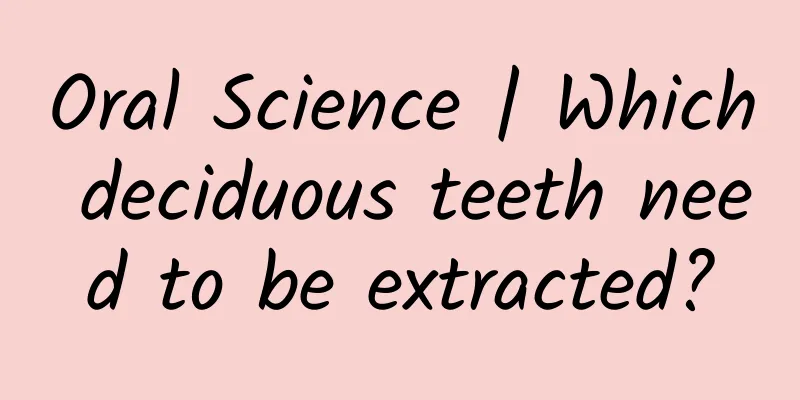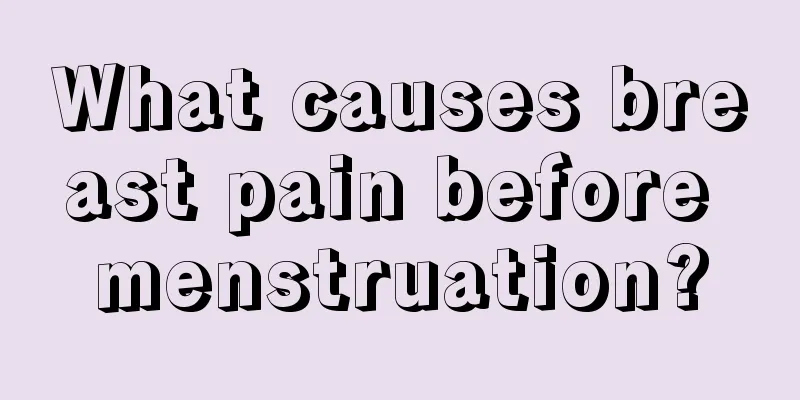Oral Science | Which deciduous teeth need to be extracted?

|
When it comes to the baby needing to have a tooth extracted, parents feel as if they are facing an enemy and feel extremely distressed. "Can you not have the tooth extracted?" "It's so painful to have a tooth pulled out. How can a child bear it?" Although we can understand the feelings of parents, in some cases, extracting deciduous teeth is more conducive to improving the oral environment, eliminating potential risks, and is of great significance for inducing the establishment of a sound permanent dentition occlusion. In order to help parents eliminate their resistance and fear about extracting deciduous teeth and understand the relevant operations of extracting deciduous teeth, today we will explain in what situations deciduous teeth need to be extracted? Most of the tooth crown is destroyed, the chewing and cutting functions are lost, and the deciduous teeth suffer from periapical infection that cannot be cured. When teeth are loose, periapical lesions are severe, root absorption exceeds 1/2, or even the roots are exposed, leading to traumatic ulcers in the local mucosa, or X-rays show that inflammation has spread to the permanent tooth germs, the patient's deciduous teeth should be extracted to reduce the impact on the permanent tooth germs. Clinically, there have been cases of recurrent periapical inflammation of deciduous teeth leading to permanent tooth germ necrosis. Therefore, when the gums of deciduous teeth repeatedly develop abscesses, parents should not neglect dental care and should take their children to the doctor for examination in time. When trauma to deciduous teeth causes the crown or root to break, shatter to below the gums, or is indented 1/2 or more, they should be extracted. The crown of a deciduous tooth is broken and broken to below the gums. The treatment effect is often poor because the root canal and crown cannot be completely filled. After the root is broken at the neck of the tooth, the broken crown is obviously loose, and there is a risk of falling off, aspiration, or even suffocation. If the tooth is cut too much, it may compress the permanent tooth germ. At this time, the injured deciduous tooth needs to be extracted. When the deciduous teeth are retained and the permanent teeth have already erupted or are about to erupt, but the deciduous teeth have not yet fallen out, they need to be extracted. This is very common in the early stages of a child's tooth replacement, especially in the lower front teeth area. Retained deciduous teeth should be removed in a timely manner, otherwise they may affect the position of the permanent teeth, and because deciduous teeth are often loose, they affect children's eating. Supernumerary teeth, which are extra teeth outside the normal dentition, are commonly found in the upper front teeth area. They often affect the eruption position and direction of permanent teeth and should be removed at an appropriate time. Natal teeth and neonatal teeth are relatively rare. Normal deciduous teeth erupt from about 6 months to 2.5 years after birth. If they erupt too early, teeth will erupt before the fetus is born, which are called natal teeth. Teeth that grow in the neonatal period become newborn teeth. If premature deciduous teeth are extremely loose and there is a risk of them falling out and causing aspiration, it is recommended to remove them. If the looseness is not serious, but breastfeeding often causes repeated ulcers on the tongue frenulum and tongue belly, it is recommended to switch to spoon feeding and treat the ulcers symptomatically. If the ulcer is difficult to heal, seriously affects eating, and causes nutritional disorders in the infant, it is recommended to remove it. The above are the common indications for extraction of deciduous teeth. Whether it is premature eruption, dental caries and inflammation, or trauma, supernumerary teeth, etc., extracting the patient's deciduous teeth is to promote the healthy development and eruption of permanent teeth, establish normal occlusion, and reduce and prevent aspiration and swallowing. |
<<: [Health Science] Do you know about children’s oral health knowledge?
>>: World Tuberculosis Day | Together we can end the tuberculosis epidemic
Recommend
Will a cervical cyst disappear?
When it comes to cervical nabothian cyst, I think...
What is the method to make private parts tighter?
Women's private parts will become loose, whic...
Why does increased leucorrhea cause back pain?
Increased vaginal discharge and lower back pain m...
What medicine can I take for urticaria during lactation?
Urticaria is a common skin disease. If a woman su...
Eleven kinds of food nourish the ovaries and promote ovulation
The birth of a life requires a long process. Firs...
Brown blood after half month of IUD insertion
After giving birth, many mothers will use contrac...
Brown discharge at 13 weeks
If a pregnant woman has brown discharge around th...
Why are candied apples so sweet? How come candied apples are added with cyclamate?
Apples contain more potassium, which can combine ...
The dangers of breast fibroadenoma, a must-read for women!
Breast fibroadenoma is a common breast disease am...
What smells can cause miscarriage in pregnant women?
With the response to the national two-child polic...
How to mix black paint? How to mix white paint without white paint
In daily life, people think that the color of an ...
Why did I find out about my pregnancy so late?
Nowadays, many young couples are planning to have...
Is HPV16 and HPV52 positive serious?
When women undergo gynecological examinations, th...
The reason why leucorrhea is watery
If the leucorrhea is watery, there are actually m...









